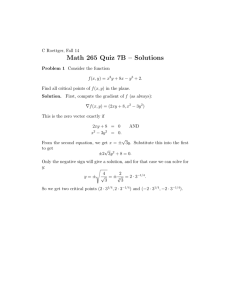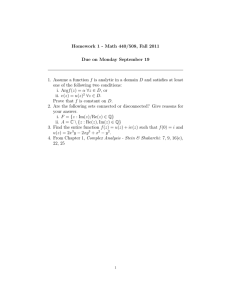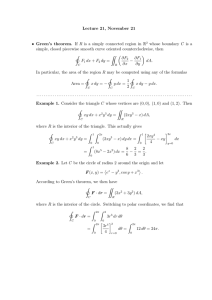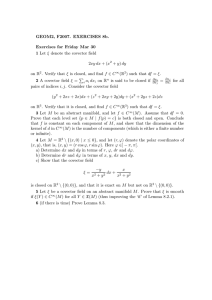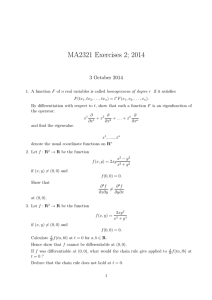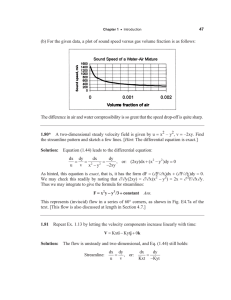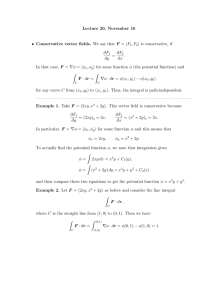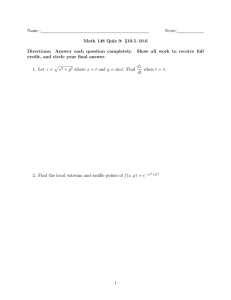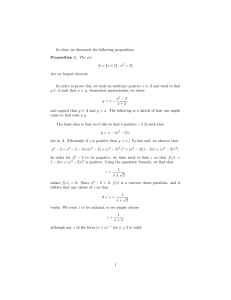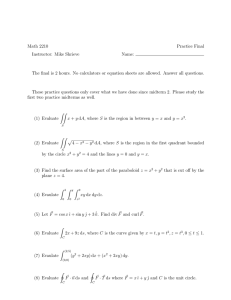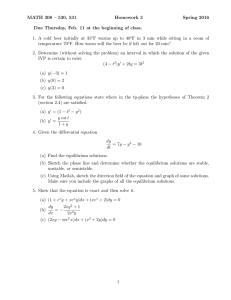Lecture 7, October 8 • f x
advertisement
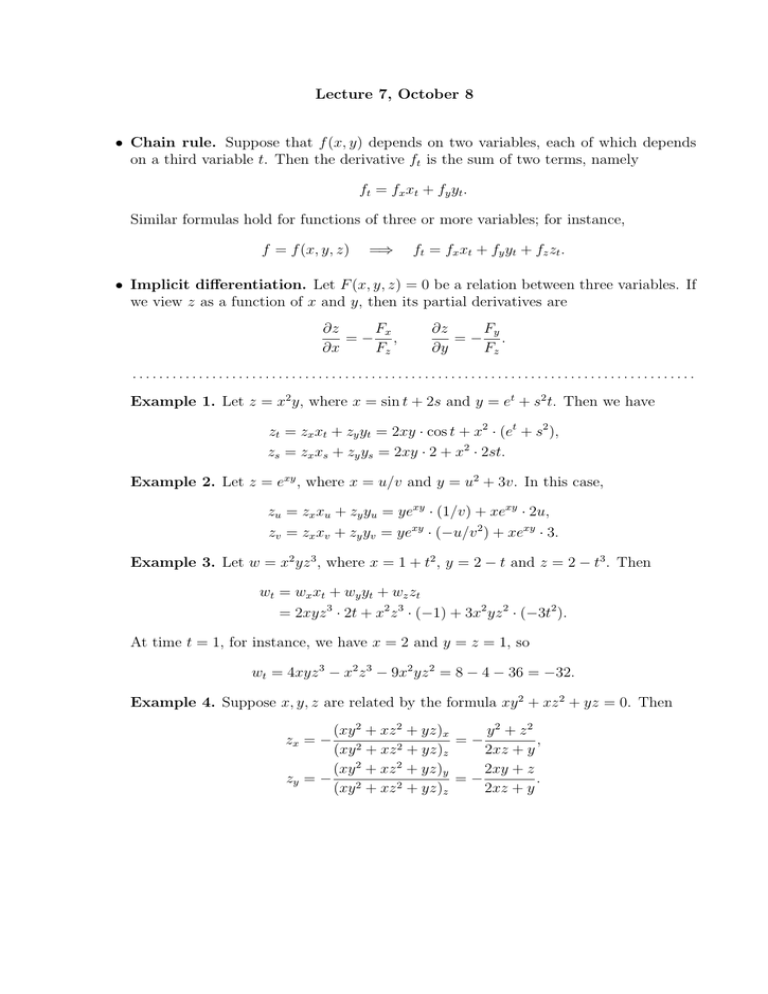
Lecture 7, October 8 • Chain rule. Suppose that f (x, y) depends on two variables, each of which depends on a third variable t. Then the derivative ft is the sum of two terms, namely ft = fx xt + fy yt . Similar formulas hold for functions of three or more variables; for instance, f = f (x, y, z) =⇒ ft = fx xt + fy yt + fz zt . • Implicit differentiation. Let F (x, y, z) = 0 be a relation between three variables. If we view z as a function of x and y, then its partial derivatives are ∂z Fx =− , ∂x Fz ∂z Fy =− . ∂y Fz ..................................................................................... Example 1. Let z = x2 y, where x = sin t + 2s and y = et + s2 t. Then we have zt = zx xt + zy yt = 2xy · cos t + x2 · (et + s2 ), zs = zx xs + zy ys = 2xy · 2 + x2 · 2st. Example 2. Let z = exy , where x = u/v and y = u2 + 3v. In this case, zu = zx xu + zy yu = yexy · (1/v) + xexy · 2u, zv = zx xv + zy yv = yexy · (−u/v 2 ) + xexy · 3. Example 3. Let w = x2 yz 3 , where x = 1 + t2 , y = 2 − t and z = 2 − t3 . Then w t = w x x t + w y y t + w z zt = 2xyz 3 · 2t + x2 z 3 · (−1) + 3x2 yz 2 · (−3t2 ). At time t = 1, for instance, we have x = 2 and y = z = 1, so wt = 4xyz 3 − x2 z 3 − 9x2 yz 2 = 8 − 4 − 36 = −32. Example 4. Suppose x, y, z are related by the formula xy 2 + xz 2 + yz = 0. Then (xy 2 + xz 2 + yz)x y2 + z2 = − , (xy 2 + xz 2 + yz)z 2xz + y 2xy + z (xy 2 + xz 2 + yz)y =− . zy = − 2 2 (xy + xz + yz)z 2xz + y zx = −
